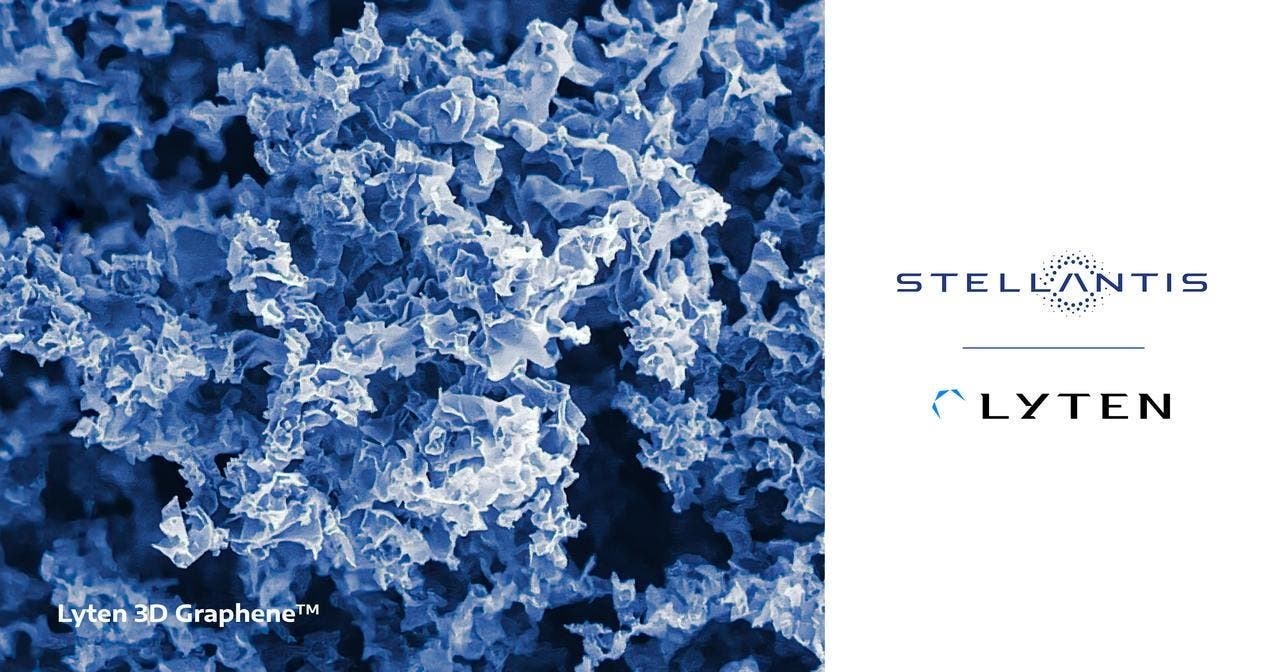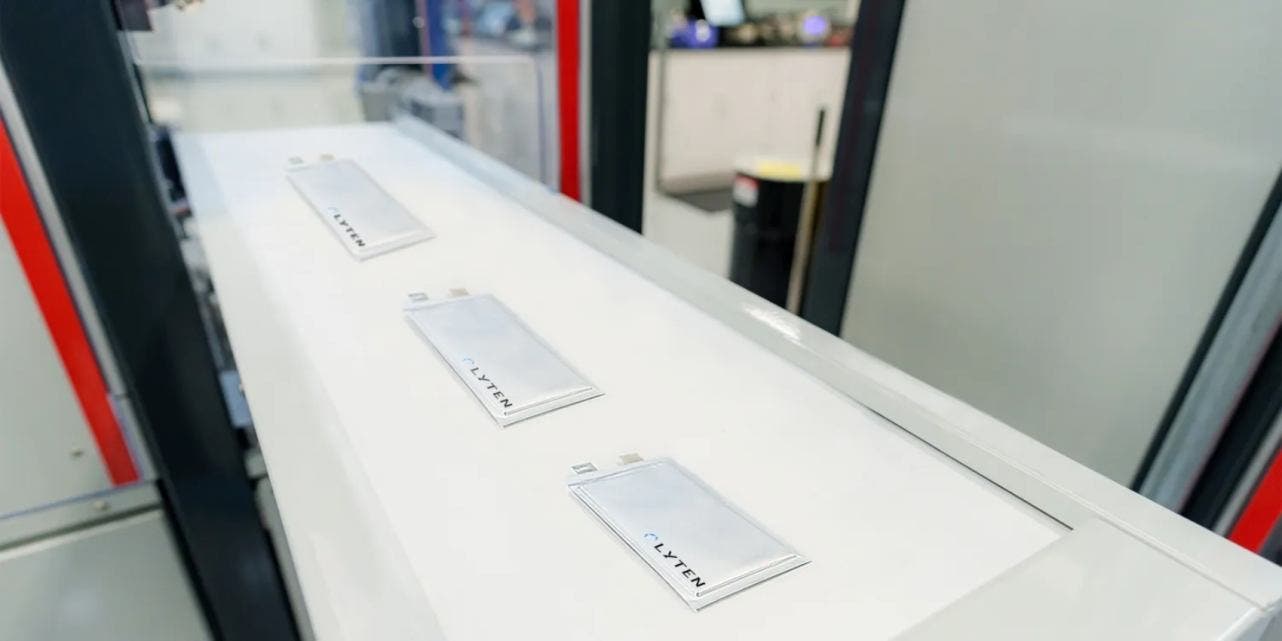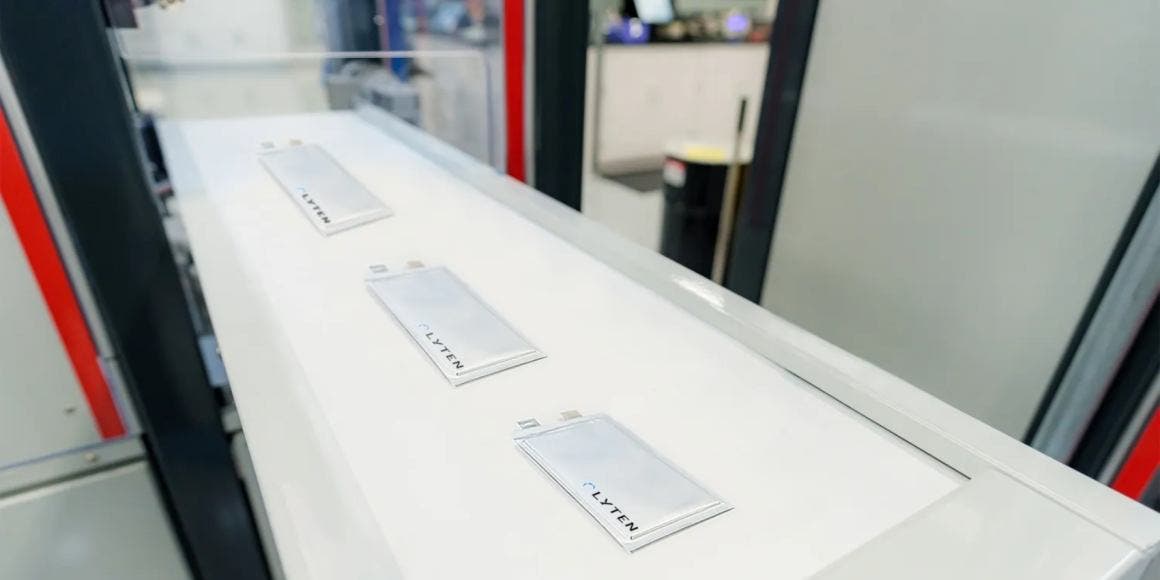Stellantis makes another decisive advance into sustainable mobility: testing kicks off for Lyten’s lithium-sulfur batteries, an innovative technology that promises higher-performance, cheaper and more sustainable batteries for electric vehicles of the future.
We know that the world of electric vehicles is constantly evolving, seeking increasingly high-performance, cost-effective and, above all, sustainable solutions. In this scenario, Stellantis stands out for its commitment to research and development of new technologies. This is also demonstrated by an important step in this direction represented by the recent collaboration with Lyten, a pioneer company in the production of lithium-sulfur batteries.

Lyten sends first battery samples to Stellantis
Lyten recently announced the shipment of the first lithium-sulfur battery samples to Stellantis and other major U.S. and European equipment suppliers. This is a significant milestone that marks the beginning of the testing phase of these innovative batteries. The samples, dubbed “6.5 Ah bagged Li-S cells,” will undergo rigorous testing to assess performance, reliability and durability under real operating conditions.
As a reminder, Lyten, founded in 2014 and based in San Jose, California, is a company at the forefront of innovative materials development and related applications. Its Lyten 3D Graphene™ materials platform is at the heart of its technology, with the goal of revolutionizing the battery industry, particularly for electric vehicles.
Now, for Stellantis, Lyten produces lithium-sulfur batteries at its automated pilot plant in San Jose. These batteries are based on different technologies than standard lithium-ion batteries, with the goal of offering longer life and energy storage capacity.
Lithium-sulfur batteries promise to revolutionize the world of electric vehicles due to numerous advantages over traditional lithium-ion batteries. Among the main benefits are: higher energy density, lower cost and greater sustainability.
This is because lithium-sulfur batteries can store more energy than lithium-ion batteries, resulting in longer driving ranges. They are also made from cheaper and more abundant materials than lithium-ion batteries, making them potentially more affordable. And lastly, the production of lithium-sulfur batteries has less environmental impact than that of lithium-ion batteries.
Lyten overcomes lithium-sulfur battery challenges
One of the main obstacles to the development of lithium-sulfur batteries was their limited durability and stability. However, Lyten says it has overcome these challenges with its proprietary technology that integrates 3D graphene into the battery cathode. This innovation improves the overall stability and conductivity of the battery, solving problems such as the polysulfide displacement effect, which caused rapid capacity loss in conventional lithium-sulfur batteries.

Basically, Lyten’s company has developed an innovative anode that replaces graphite with a lithium-metal composite. This modification brings two main benefits: increased stability and efficiency of the anode and an increase in the overall energy density of the battery. In addition, battery degradation over time is reduced. Already, Stellantis had successfully tested this technology on the Chrysler Halcyon concept in February, proving strong appeal for its potentials.
The collaboration between Stellantis and Lyten represents an important step toward the development of better performing, cheaper and more sustainable electric vehicle batteries. The ongoing trials will allow the potential of this innovative technology to be evaluated and bring us closer to a future where electric mobility is truly accessible to all.
With the testing of Lyten’s lithium-sulfur batteries, Stellantis is confirming its leading role in the transition to more sustainable mobility. The group’s commitment to research and development of new technologies is a positive signal for the future of the automotive industry and the environment.
